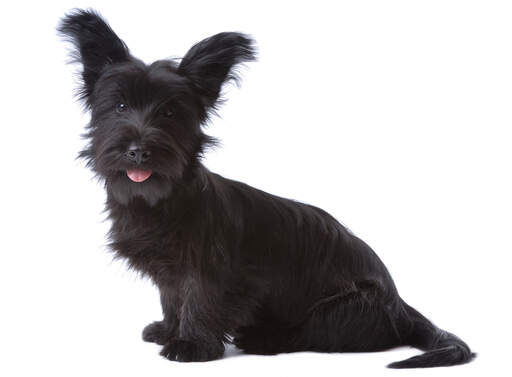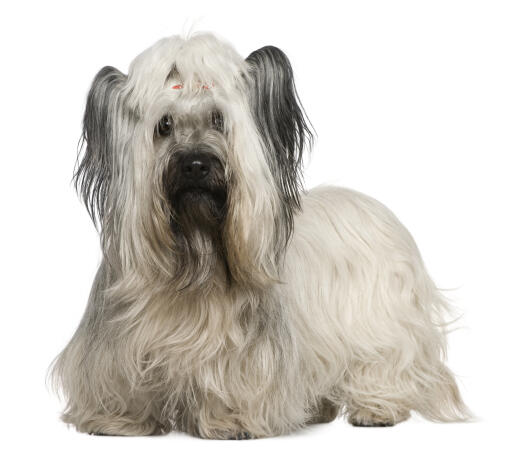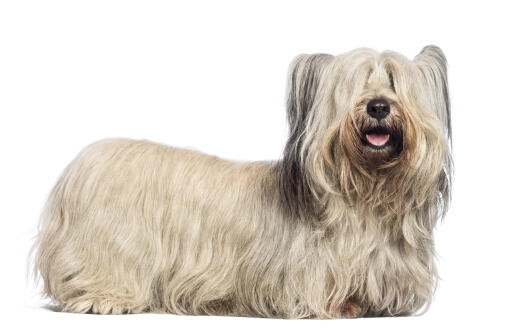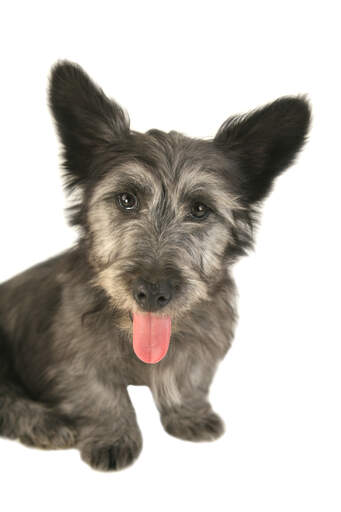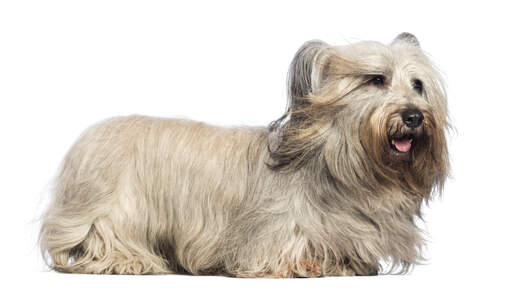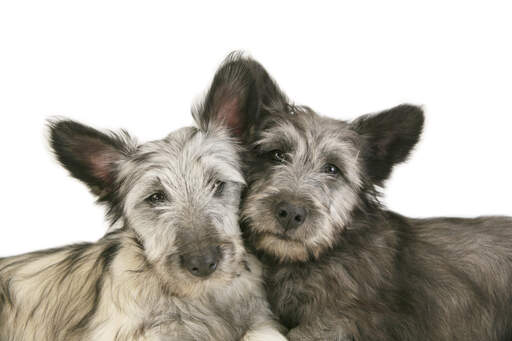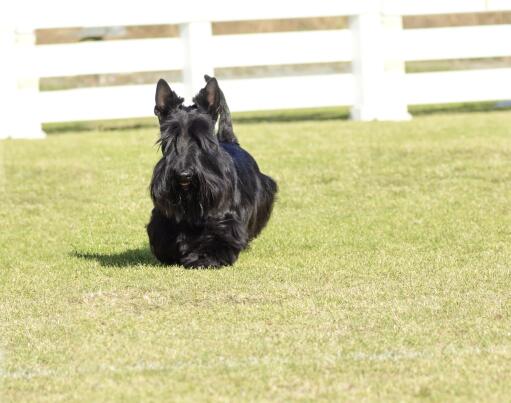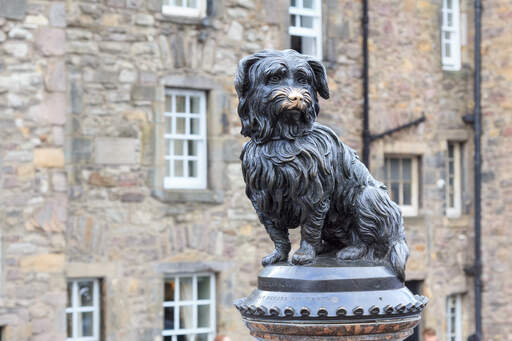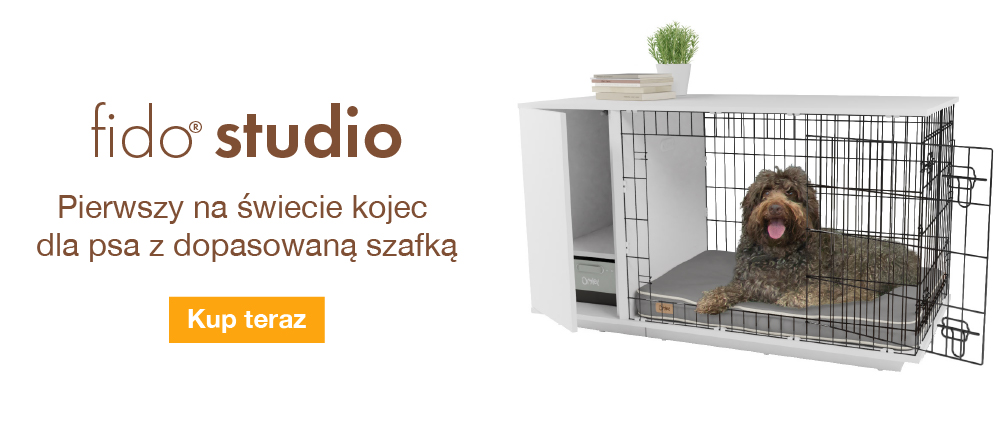Skye Terrier Dogs








Historia i wygląd
The Skye Terrier originates from West coastal areas of Scotland, namely the Isle of Skye and is one of the rarest breeds of Terrier. It dates back to before the 16th century and was popular amongst the Upper classes, but soon became more common with the lower classes. Queen Victoria kept both the drop eared and prick eared dogs. The low, long body shape made it ideal for getting into small areas to catch vermin, such as foxes, otters and rats. It is now classed as a threatened species. It is estimated that unless a concerted effort is made, the Skye Terrier could become extinct in 50 years.
Zachowanie i hodowla
The soft look of the Skye Terrier is deceiving, these are fearless, plucky dogs who stand up for themselves. They are good with children and other dogs within the house if brought up with them, yet they can be cautious with strangers if not properly socialised. They make good watchdogs and will sound the alarm if they're not happy about a situation. With their family they are loyal, friendly, good natured and like to be around people, but they can suffer separation anxiety if left for too long. Skye's can be aggressive towards other dogs they don't know, so early socialisation is important, plus training as an adult to prevent problems occurring. They won't necessarily start a fight, but will not back down from one. These are feisty little dogs who forget how small they are. Training needs to be firm, but fair and positive reinforcement, treats and play all help to make lessons more enjoyable for them. They can learn quite quickly if their minds are stimulated, but sometimes they just aren't in the mood. Recall can be a problem, like many Terriers, as their prey drive is very high. Best walked on a lead or a secure area to prevent any escapes. They have a long memory and will remember things they have learnt and also if they are treated badly. Harsh correction is best avoided with this breed. Skye Terriers can happily trek across hills and walk for miles. As long as they are with their owner, they are happy to keep on walking - they make good hiking partners. A moderate walk every day is best to keep them in shape, plus the chance to run around, a game of fetch or ball will also make them happy. They aren't demanding dogs, exercise wise, but do need to get out and explore. They do well with Earthdog trials and agility.
Their long coat needs regular brushing, but isn't high maintenance. Brushing through a couple of times a week, plus the occasional bath will be fine in maintaining the coat. The hair around their mouth and eyes might need a bit more attention. They are a tough dog with few health concerns. Premature closure of the distal radius is sometimes seen, whereby the radial bone stops growing prematurely, causing malformation of the leg.
Temperament
Skye terriers have a loyal and plucky temperament. Surprisngly strong the Skye Terrier is also extremely courageous. This makes them good watchdogs as like most terriers they are quick to let their voices be heard. They are likely to become attached at the hip to one person in particular and although they wil be happy enough with other family members they are likely to avoid strangers of any species.
Problemy ze zdrowiem
Health problems that may affect Skye Terriers include cancer, autoimmune disease, intervertebral disc disease (pressure on spinal cord which can cause paralysis), allergies and digestive problems.
Informacje o rasie
- Status: Rasa zagrożona wyginięciem.
- Długość życia: 12 - 15 years
- Waga: 11.5 - 18 kg
- Wysokość: 10 -11"
- Bardzo rzadka rasa.: Tak
- Sierść: Długa
- Wymagania co do sierści: Częściej niż raz w tygodniu
- Miasto lub gmina: Either
- Minimalny rozmiar domu: Mały dom
- Minimalny rozmiar ogrodu: Mały lub średni ogród
- Typ rasy: Pies na szkodniki
- Rozmiar: S
- Poziom energii: niski
- Wymagane ćwiczenia: do 1 godziny

